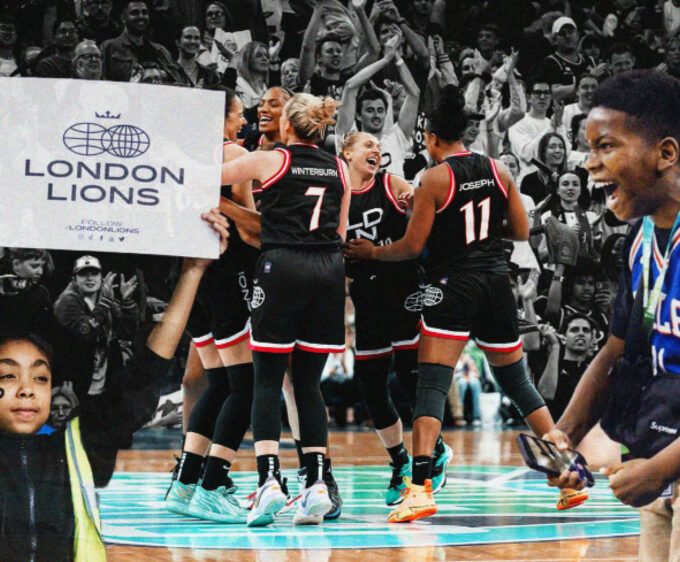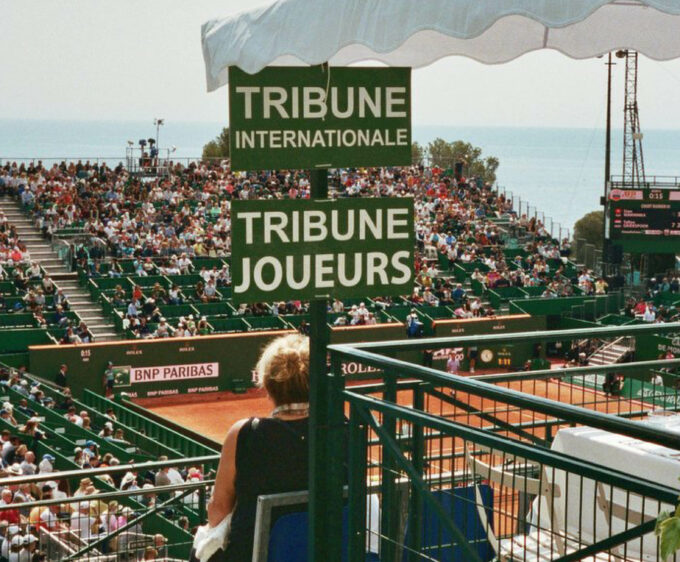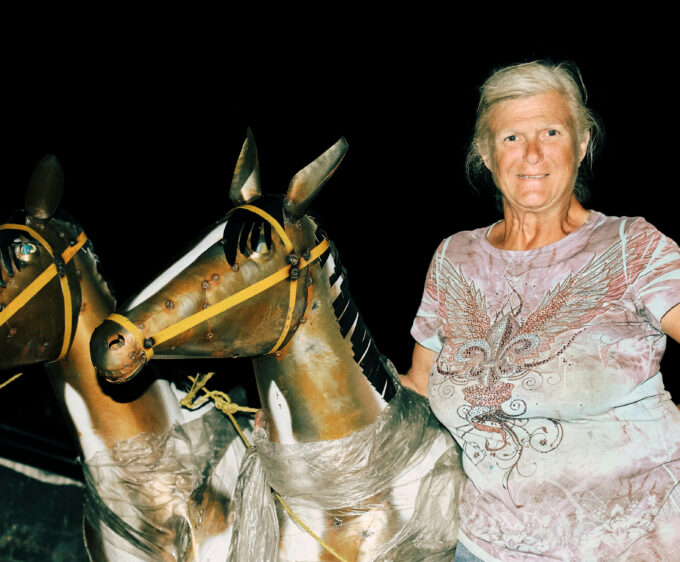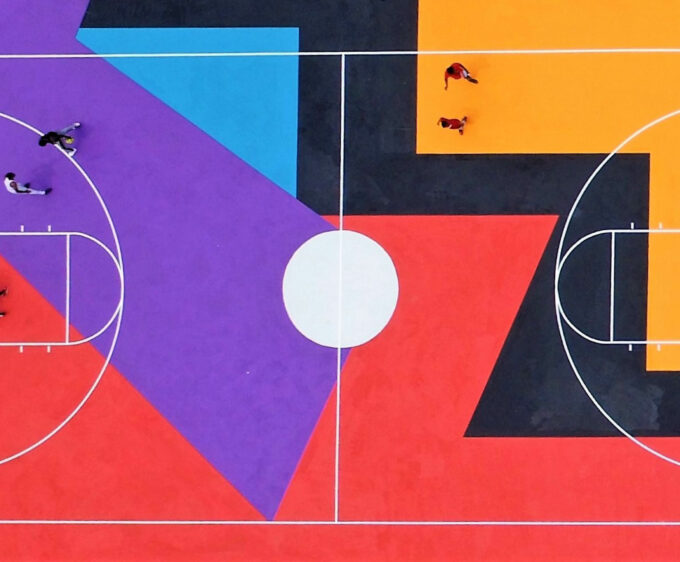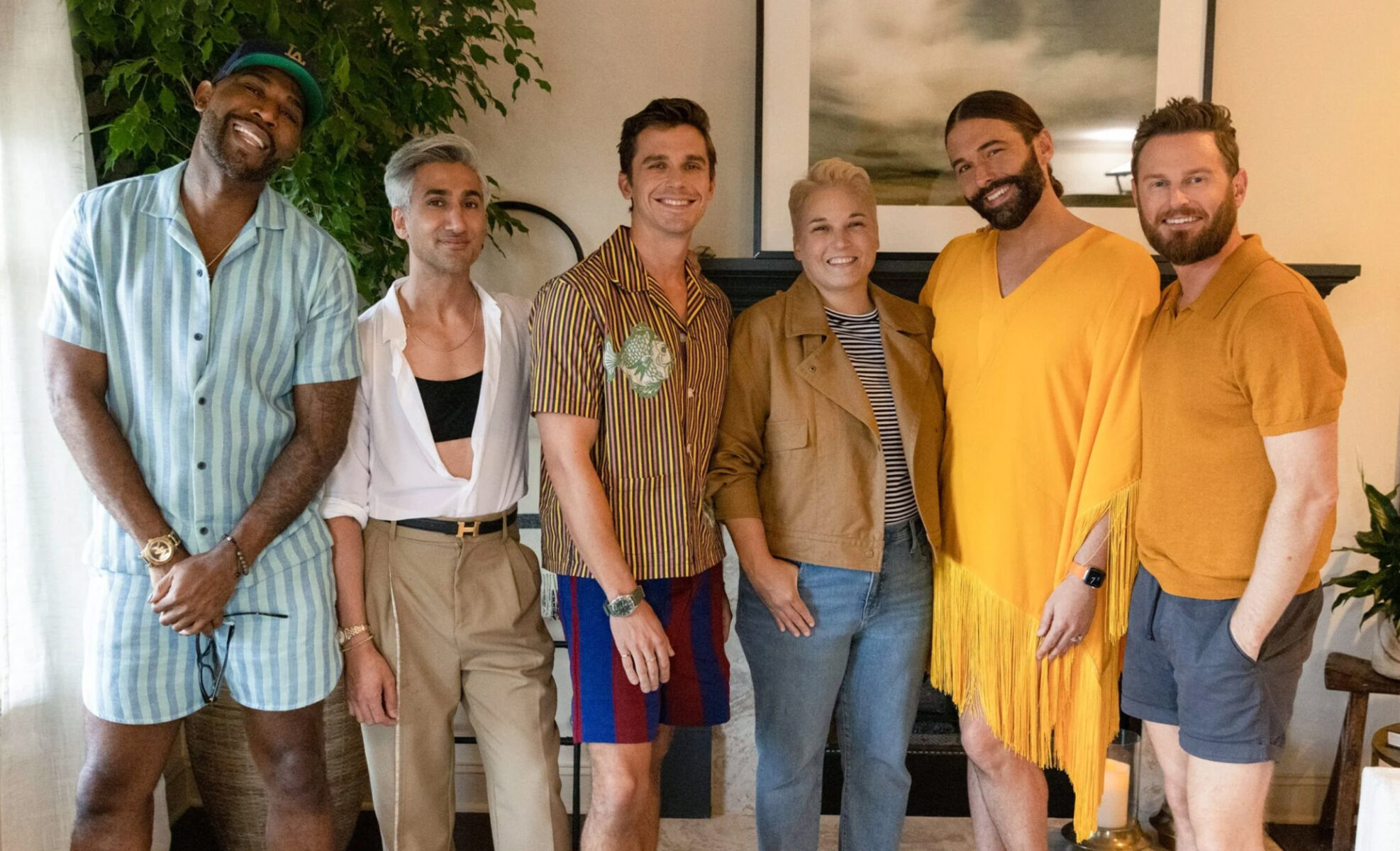
Fandom: Steph Williams
From Saints superfan, to Fan of the Year and beyond. Meet Steph Williams whose appearance on Netflix's Queer Eye completely transformed her life and perception of fandom forever
By Glorious
Steph Williams has always been a passionate New Orleans Saints superfan, but during the pandemic, her fandom took on even greater significance as she felt compelled to make a positive impact on her community. Steph’s dedication resulted in her recognition as Fan of the Year. While her fan status brought joy, Steph also faced challenges due to negativity and hate on social media for not fitting typical fan stereotypes. However, this motivated her to embrace her uniqueness and become a positive figure within the fan community and it is these qualities that played a pivotal role in her appearance on Queer Eye.
Through her participation in the Netflix series Queer Eye, Steph’s story has touched the lives of numerous individuals and her journey as a fan has transformed her perception of what it means to support a team. While she remains a dedicated supporter, her focus now extends beyond herself. Steph recognises the value of amplifying others’ voices and educating people about the inclusive and supportive nature of fandom. With her infectious enthusiasm and genuine compassion, she continues to inspire others to embrace their fandom, support one another, and create positive change both within and beyond the sports realm.
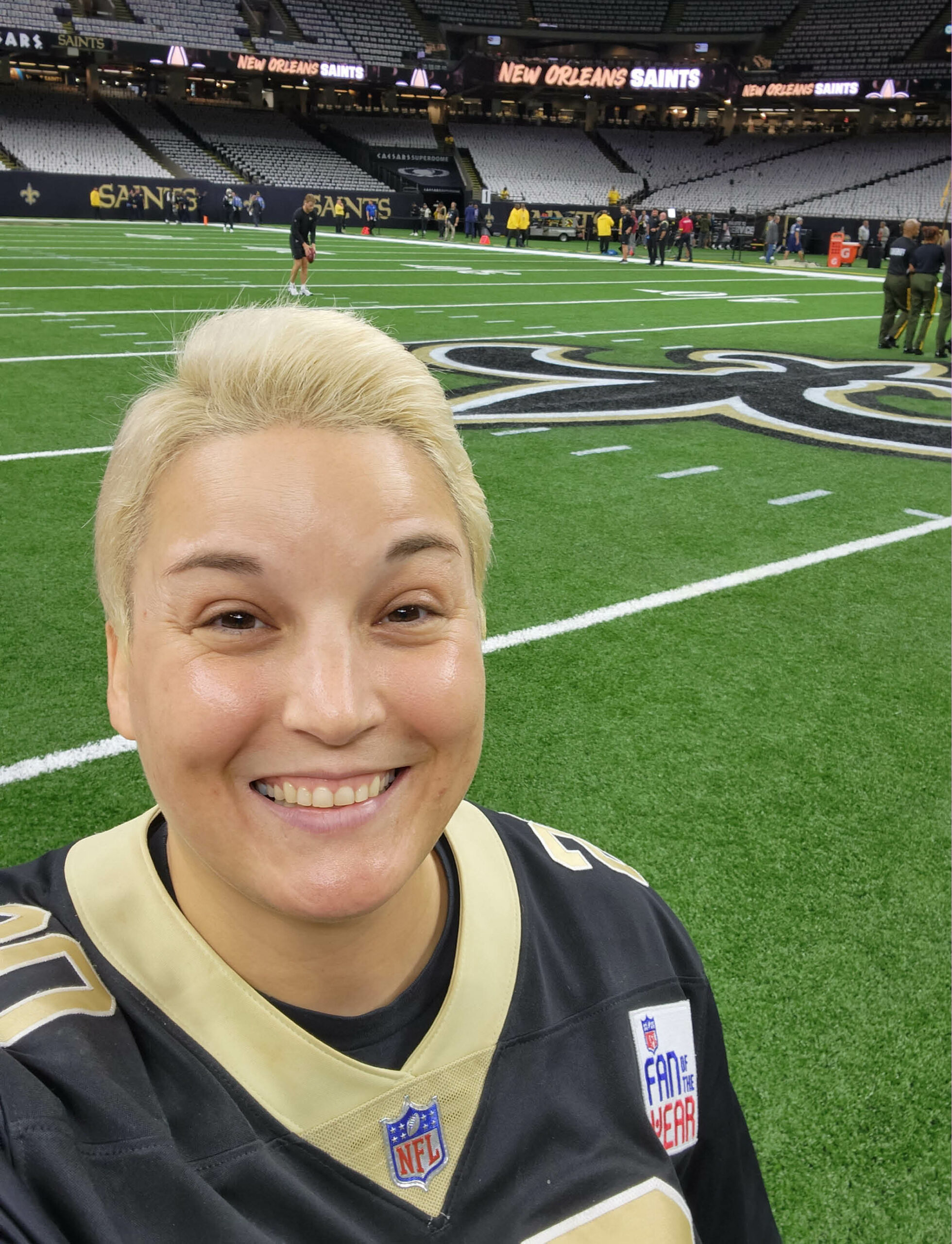
Glorious: You’re a New Orleans Saints superfan. Have you always been interested in sports or played them?
Steph Williams: Absolutely. I’ve been involved in sports since I was a kid. I started playing when I was around five years old. I played flag football when it was available, although girls weren’t allowed to play regular football. If I could have, I definitely would have. I also played volleyball, ran track, and aspired to play college softball. However, basketball turned out to be my natural talent. I think my parents got me into sports to keep me active and out of their hair, to be honest. Growing up, watching the Saints was a Sunday tradition in New Orleans. It was a family affair. We would gather, have lunch (which we called dinner), and watch the Saints play on TV. It’s been a lifelong passion for me, even when the team wasn’t doing so well. I learned about the dedication of passionate fans from my grandparents and parents. Basketball eventually took precedence over football, so basketball and football became my biggest passions.
Glorious: Being a sports fan took on a whole new meaning for you, it served as a way to mask all your insecurities, particularly regarding your sexuality. Can you tell us about this?
Steph Williams: It really began during the pandemic. New Orleans, where I live, was hit hard by the pandemic, especially after Mardi Gras. We were in a tough situation with a high number of cases. I kept asking myself, “What can I do? I’m physically capable, and I want to contribute.” So, I decided to tap into my Saints fan community, which is all about fostering a sense of unity. We came together to provide masks for healthcare workers, lunches for postal workers, meals for hospital staff, and anything else we could do to support our community across Louisiana. That’s when it caught the attention of the Saints organisation, and I was honoured as Fan of the Year.
It gained some media attention, and it became a part of my identity. You become a sort of figure in a way. It started to shift my focus away from my personal insecurities and more towards the impact I could make. When the Fan of the Year recognition came out, I was incredibly humbled because I do those things out of a genuine desire to help, not for publicity. However, I faced a lot of negativity and hate on social media because of my appearance. I don’t dress up like some fans do; I typically wear my jersey. It was tough because you can’t not see those things. So, I started pouring myself into being this figure. It became less about me as an individual and more about embodying the qualities I wanted to see – a happy, giving person – despite the internal struggles I was dealing with.
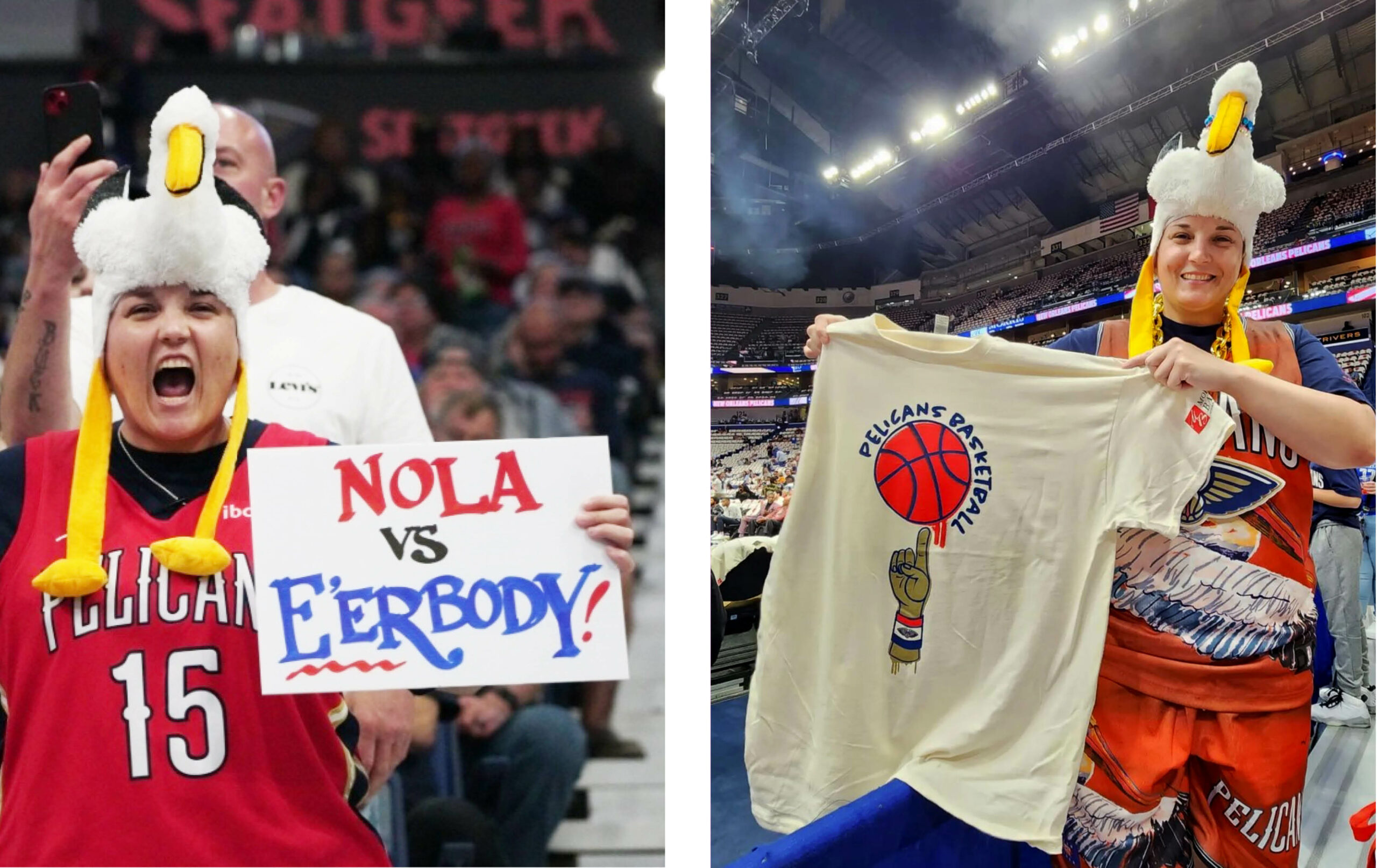
Glorious: You’re not just a fan of the New Orleans Saints; you also support the Pelicans basketball team. Can you share the story behind Mama Bird?
Steph Williams: Ah, the bird hat! So, for the Pelicans, our NBA team, I played basketball in college, and I have a deep love for the sport. I have season tickets for both the Saints and the Pelicans. One day, I came across this bird hat and I thought to myself, “I have to find one.” Let me tell you, it was quite a challenge to track down that hat. The company that made it stopped producing it. Long story short, my journey from being named Saints Fan of the Year started to blend into my support for the Pelicans. I thought, “Hey, if I can be someone that everybody likes, maybe I won’t have to deal with negativity or hate. People will appreciate me because I’m fun and funny, just because I’m wearing this bird on my head.”
Previously, when I attended games, people would walk right by me as if I didn’t exist. If I said something nice or cheered them on, it would often be met with indifference. But when you become this figure, suddenly everyone wants to talk to you and kids want to take pictures with you. It shouldn’t have to take becoming someone else or putting on a show for people to accept and like you. That realisation hit me during the filming of Queer Eye and having that conversation. It made me reflect on the ways I had masked who I truly was. Before that moment, I hadn’t seen it in that light. I simply thought I was being a fan, but it made me take a step back and re-evaluate.
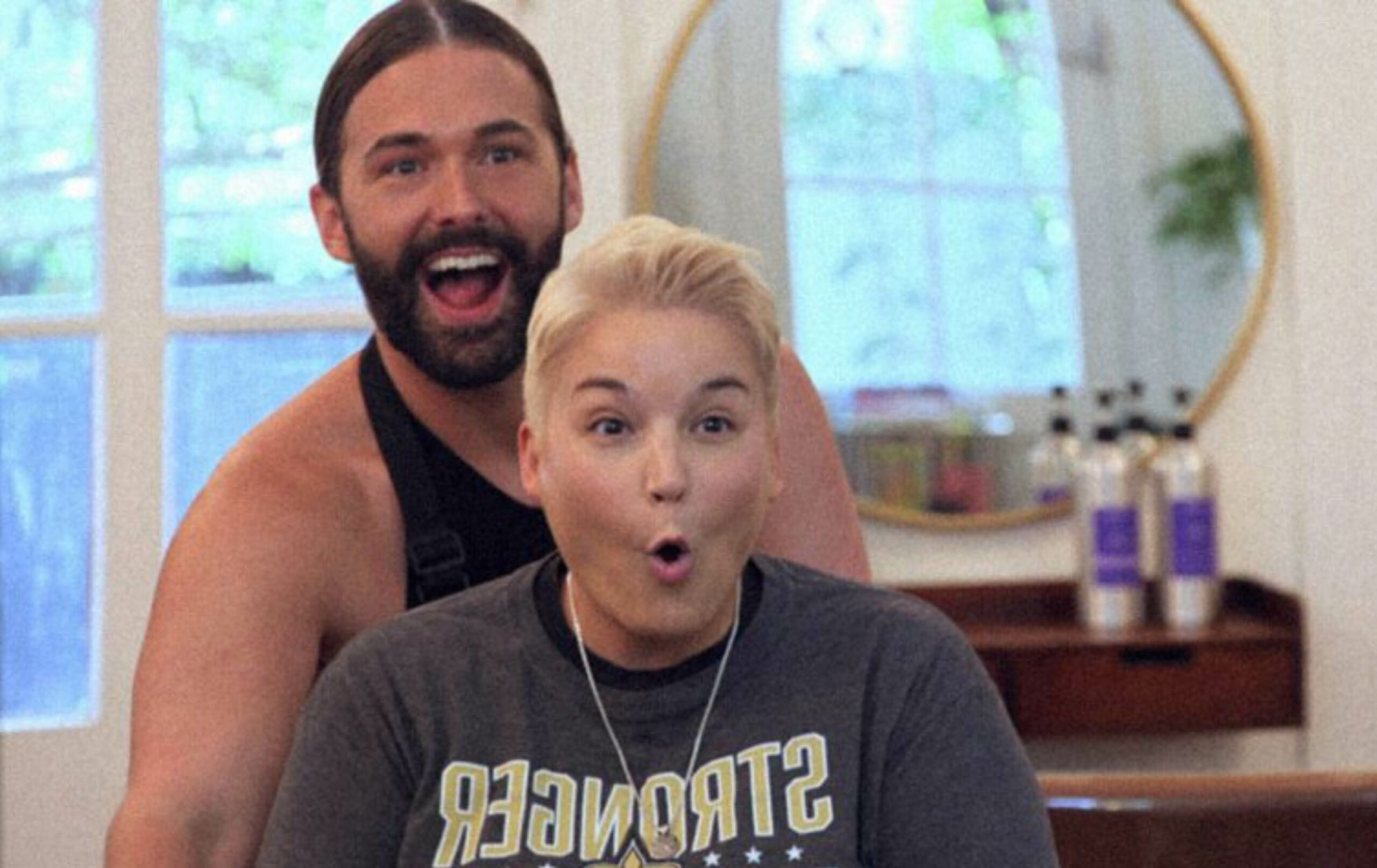
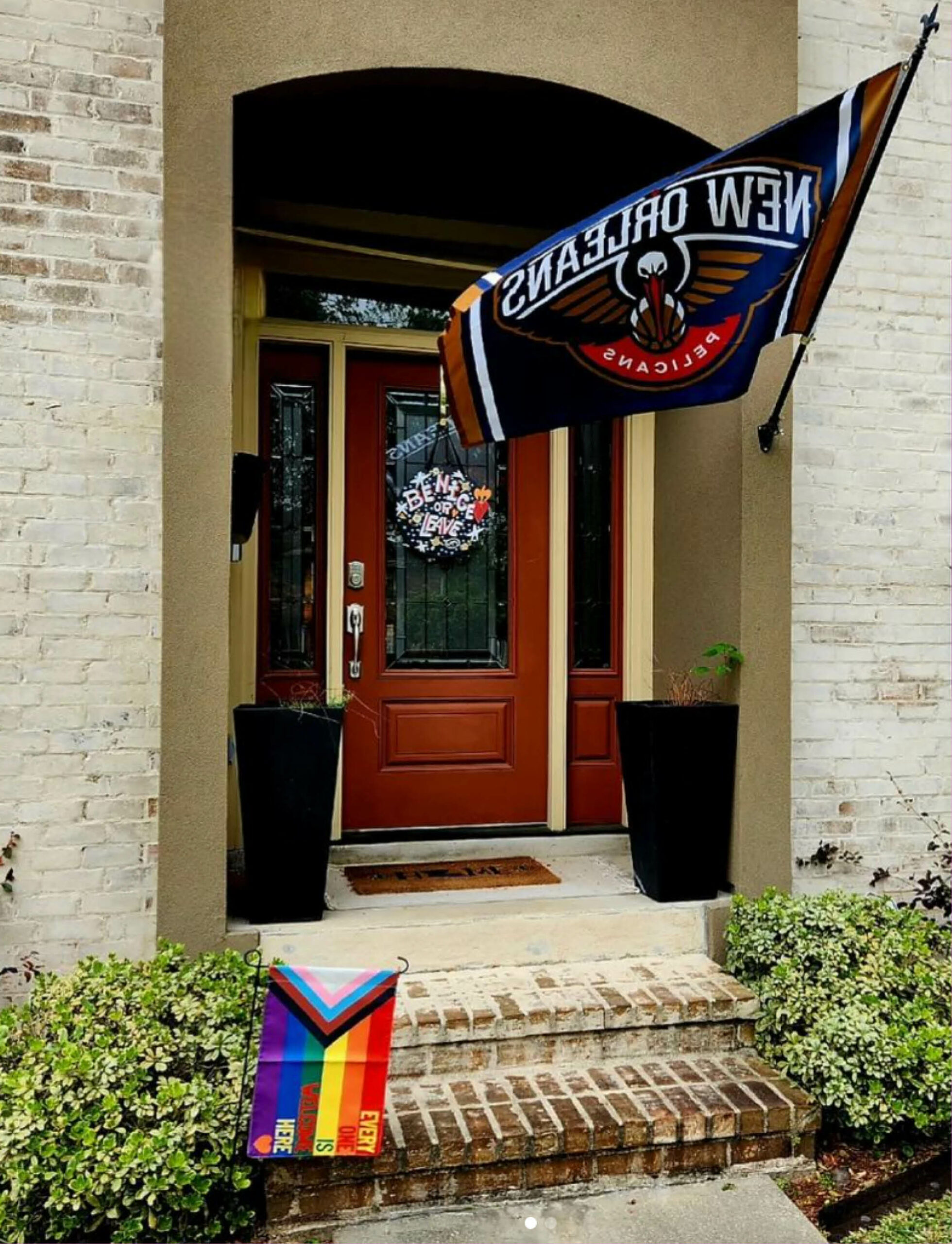
Glorious: Being a sports fan often means finding your tribe. Did you struggle to find a community where you felt comfortable being yourself?
Steph Williams: That’s a great question. There are definitely pockets of people out there, but it’s not always easy to find a community where you truly fit in. What makes sports fans unique is that in the heat of the moment, we’re all just fans, united by our love for the game. However, when you step back, you start to notice the different sectors or cliques within the fan base. You might think, “Hey, we’re cool during game time, but I don’t know if I’d hang out with you outside of this.” I have to be honest, the Saints have never had an LGBTQIA+ day or any specific acknowledgment in that regard. But this past year, the Pelicans had their first pride night, and I was able to wave the flag and be the face for that event. It was incredibly powerful because it made me feel like all fans are welcome. We’re all fans of this team, regardless of our backgrounds.
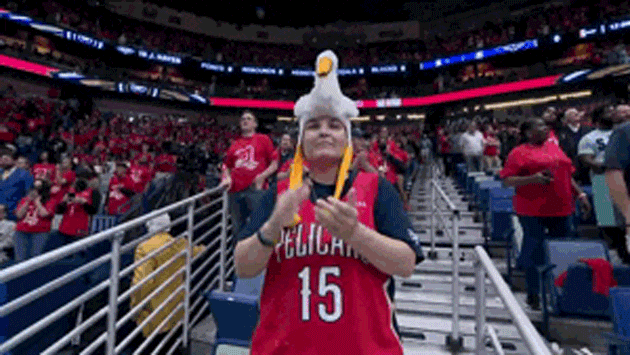
community
Let’s face it, in American football, you have guys dressing up in sequins. That doesn’t mean they’re part of the LGBTQIA+ community. Fandom can transcend those boundaries. But what truly makes fandom special is the tribe I found, and it’s not limited to just LGBTQIA+ individuals. It’s the people who love and accept me for who I am. We even came up with a word for it in our group, “fa n m i l y” (fanmily), which stands for fans who become family. That’s what we are. We gather outside of the game and support each other. However, sometimes it takes vulnerability for someone to say, “Hey, we’re all equal fans. We’re all in this together.” When I leave the Superdome and hold my partner’s hand, I sometimes face negative comments. Not everyone has to deal with that. But the bottom line is, shouldn’t we all just be fans? That’s where the struggle can get challenging. But once you find your community, the right community, it’s pretty amazing.
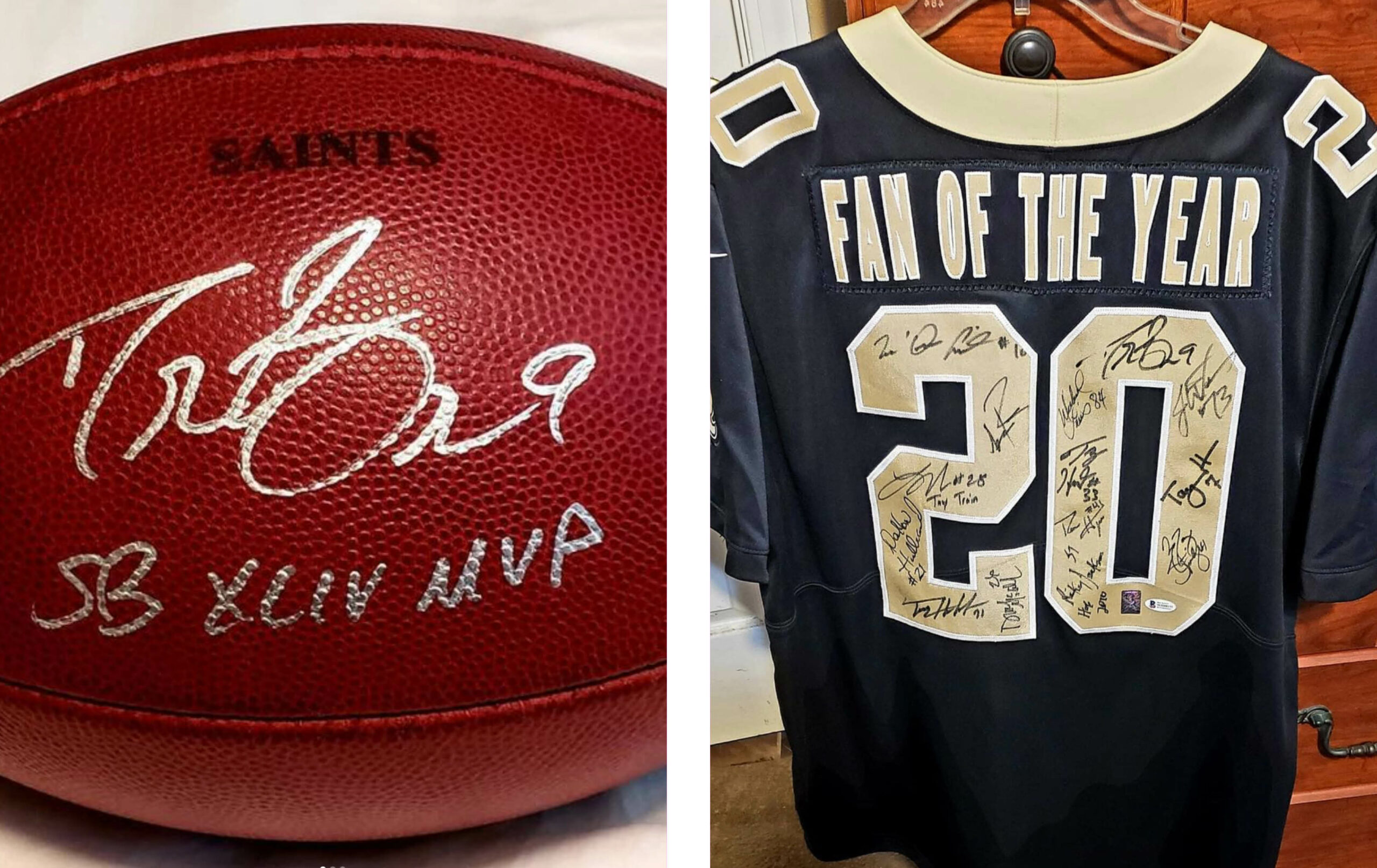
Glorious: You’re also a collector of memorabilia. How did this passion start?
Steph Williams: You know, I was familiar with the concept of memorabilia, like collecting baseball cards and such. But it wasn’t until I met a couple through social media and Saints fan groups that I discovered a whole new world of memorabilia. They had these amazing items, like game jerseys or cleats from players. It was on a whole different level compared to just photos and cards. It never even occurred to me that you could collect that kind of stuff, unless you were wealthy. I’m very selective about what I acquire, but that’s what makes each piece special. They represent a particular time, place, and player that had an impact on me. Collecting them is a way for me to hold onto those feelings and memories. I did joke with Rachael that it’s also an investment because some items have value! I am working on downsizing my collection, but when I look around, even in my office, and see the pieces, they bring me a sense of nostalgia, like listening to a favourite song.
Glorious: How did your involvement with Queer Eye come about?
Steph Williams: Well, my fiancée Rachael was the one who officially nominated me. However, the show’s producers found me because of the Fan of the Year recognition I received for being a dedicated fan of the New Orleans Saints. It’s not something I would have ever signed up for myself. When I first received the message, I thought it was a joke or spam. I was like, “What is this? What’s going on?” Clearly, I hadn’t done my homework. But I assume once they knew they were coming to New Orleans, they started looking for people in the area and somehow came across my story. Being named Fan of the Year was one of the most incredible experiences of my life, but it also came during one of the toughest times. Looking back, I realise that this recognition gave me a platform to be vulnerable and provided me with the opportunity to go through this transformative experience that has truly changed my life. It’s funny how life works, isn’t it?
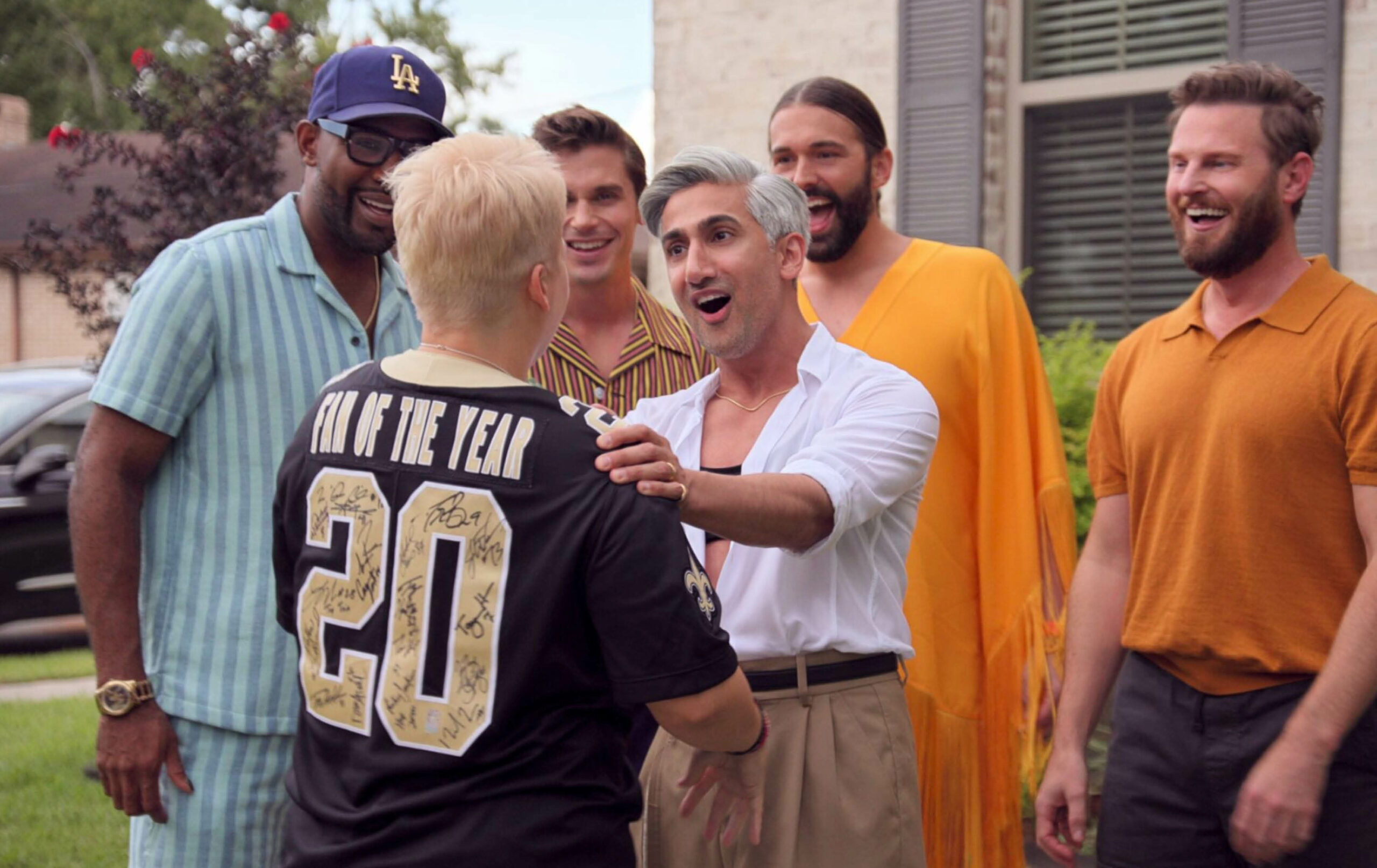
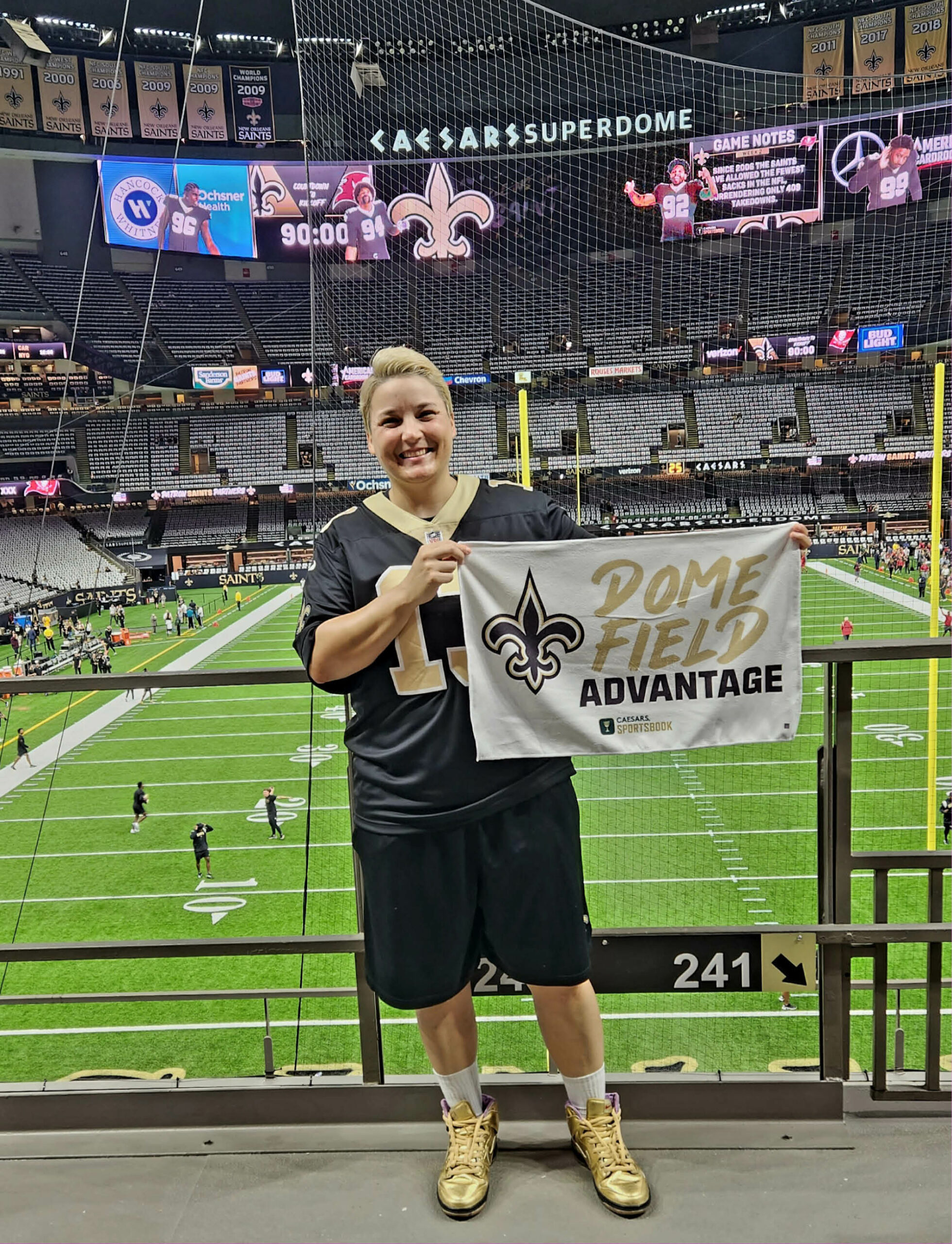
Glorious: What was the filming experience like, and are the guys as wonderful in real life as they appear on screen?
Steph Williams: That was actually the thing I was most nervous about. Having been around sports signings and events, I’ve had my fair share of encounters with athletes where they didn’t quite live up to my expectations. So, going into the show, I wasn’t sure how the guys would be in real life or how the show would unfold. But I can confidently say that everything you see on screen is 100% authentic. There was no scripting or pretense. It was all in the moment. And I have to say, all of the guys—Tan, Antoni, Karamo, Bobby, and Jonathan—are exactly as amazing in real life as they appear on TV. That’s what made me feel comfortable being vulnerable in front of the cameras and essentially sharing my story with the world. I could sense that they genuinely cared about me and were invested in helping me grow and empowering me. Their transparency and authenticity were crucial in eliciting the responses and breakthroughs they got from me. I often tell them that they are like saints themselves because they are truly incredible individuals. I feel blessed to have had the opportunity to meet and work with them.
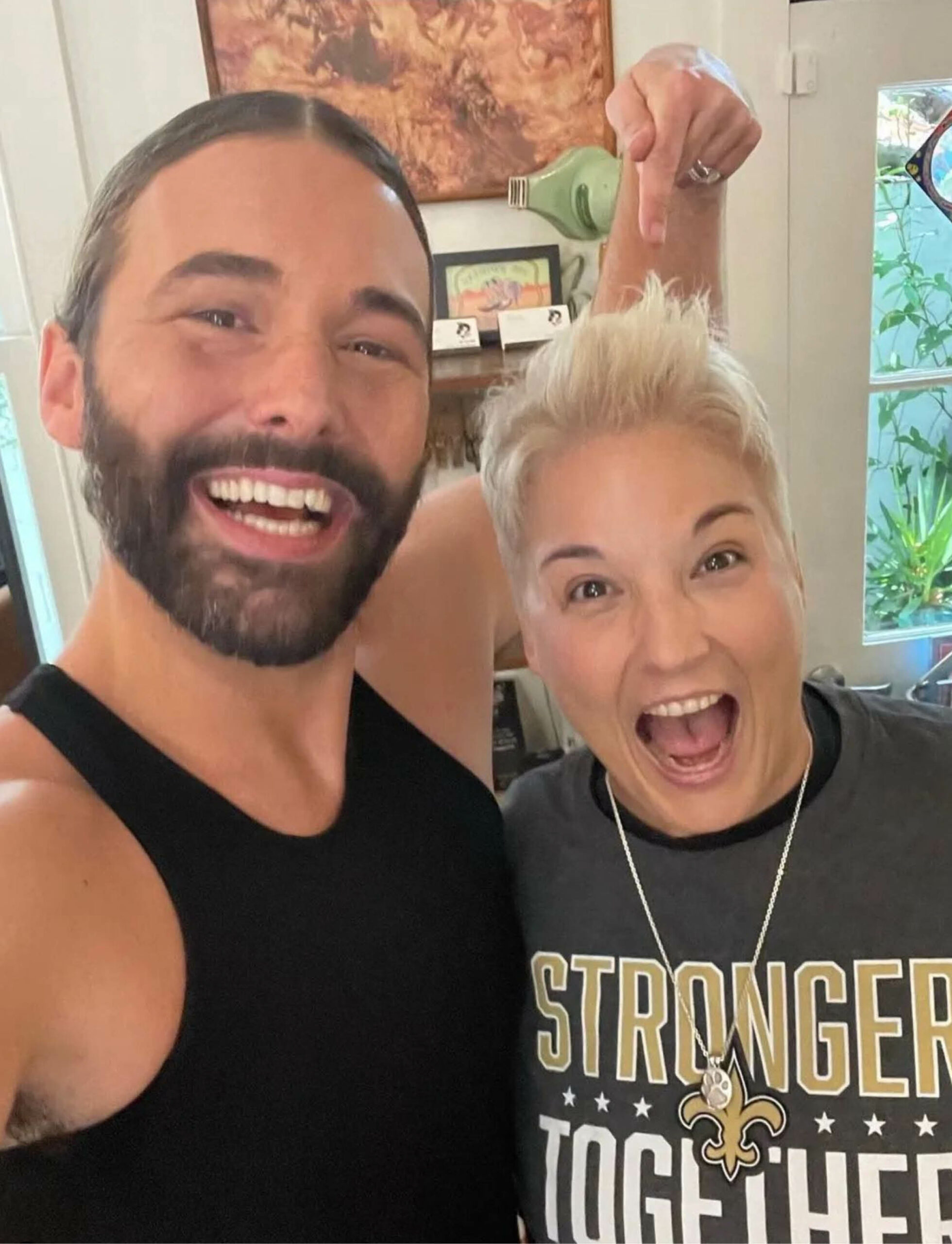
astonishment
Glorious: What impact did your appearance on the show have on other people’s lives?
Steph Williams: It has had a significant impact. Other fans, even those in collector groups, have reached out to me, expressing their astonishment. People who may have never watched an LGBTQIA+ program are now tuning in and discovering new things about themselves. It has opened up a completely different audience and brought diverse individuals together through the shared love of sports. The response has been overwhelming, but in a positive way. I never could have imagined the magnitude of it. I’ve received hundreds of messages from people all over the world. I’ve had to use Google Translate several times just to understand some of them. But I’ve made it a priority to reply to each message, even if it took time. I felt it was crucial to acknowledge and connect with those who took the time to watch my story and reach out to me. It has been a much bigger experience than I ever anticipated. This incredible response fuels my desire to continue using the platform I’ve been given and to keep moving forward.
Glorious: So, once a superfan, always a superfan?
Steph Williams: Absolutely, I will always be a fan. However, what has become increasingly important to me is using my voice to amplify the voices of other fans. It’s about educating people and helping them understand that fandom goes beyond just football or any sport. It’s about building a community and supporting one another. The person sitting next to you at a game, the one you’re buying drinks and hot dogs for, might be going through their own struggles and challenges. It’s about taking that sense of community and support to a deeper level. I know that sports are often seen as an escape, but what makes sports truly special is their ability to create growth and positive change. So, yes, I will always be a fan, because it’s ingrained in me. It’s something I can’t help but be.
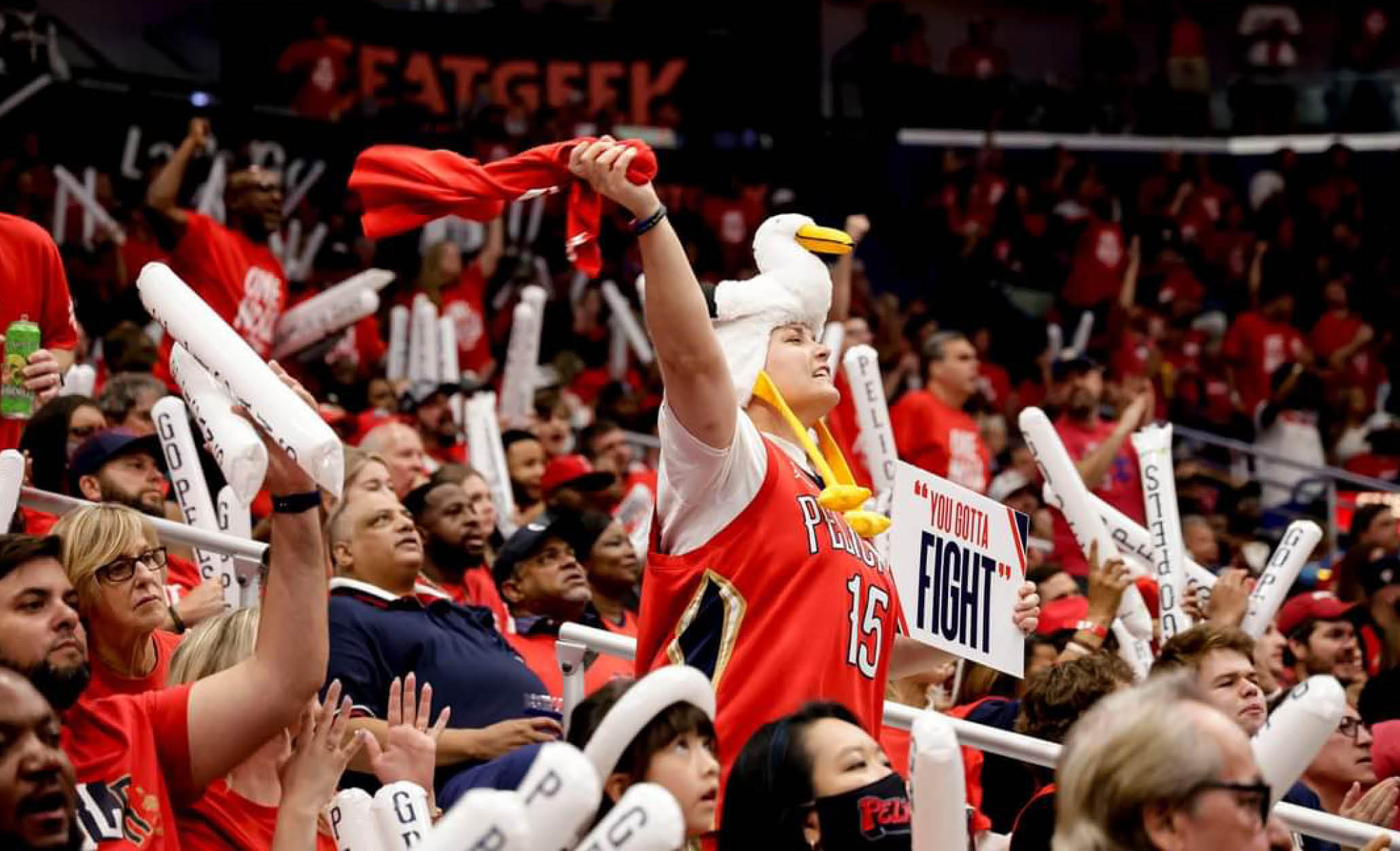
Title Image via Queer Eye, Netflix
Editorial Design This Is Root

